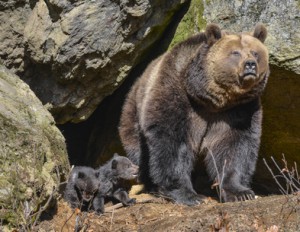A Tough Old Teddy Bear
My friend was a tough old guy, a Seabee in the Pacific during WWII. I remember when he asked me to spar with him. I was in my mid-twenties and taking martial arts training. Of course, I refused. After all, he was retired, grey haired and well…old. He persisted, but I stood my ground. Finally, to my relief, he relented and offered to simply shake hands rather than spar. Naively, I shook his hand. I really don’t know what happened next. All I know is that suddenly I was off balance, my back pressed against his chest, one of his arms around my neck, and the other in my back. My hands held tight to his arm around my neck so I wouldn’t fall.
“Now all I have to do is squeeze my arm like this.” His arm tightened slightly on my neck as he continued, “and you’d pass out in 30 seconds.” Then he gently stood me up and turned me around…still shaking my hand. He smiled and we both laughed as he gently teased me about martial arts. He was a tough old guy.
Well…he was a tough old guy until his wife or some children came around. Then, he became a teddy bear. He spoke gently and adoringly to his wife. He played games and talked with the children. They loved him. After church they all came running to give him a hug and tell him of their most recent adventures. Even as an adult I loved to talk to him and share our days. He was a tough old teddy bear who taught me important life lessons.
Perhaps one of the most important lessons I learned from him is that a “real man,” a “man’s man” so to speak, is a tough old teddy bear. A study out of Emory University agrees and offers a single explanation for the tough guy who shows the gentle affection of a teddy bear. They found that a single male hormone will produce either aggression or cuddling behavior depending on the social context. What’s the hormone? Testosterone. In this study, testosterone enhanced aggressive behaviors in the context of defending territory and important relationships. But testosterone also enhanced affectionate (cuddling) behavior in the context of children and family. In other words, my friend was a “man’s man,” both tough and affection, protective and cuddling, because of testosterone (at least in part). He could stand tough to protect those he loved but he could gently share affection with those he loved as well. And testosterone, the “male hormone,” seems to play a role in both these male traits. I mention this because it is important for us to teach our sons that a “man’s man” can be both protective and nurturing, tough and caring. In fact, men are biologically equipped to be both. Isn’t it time to give our sons and our fathers permission to be both? Our world needs more “tough old teddy bears” today.

-0 Comment-